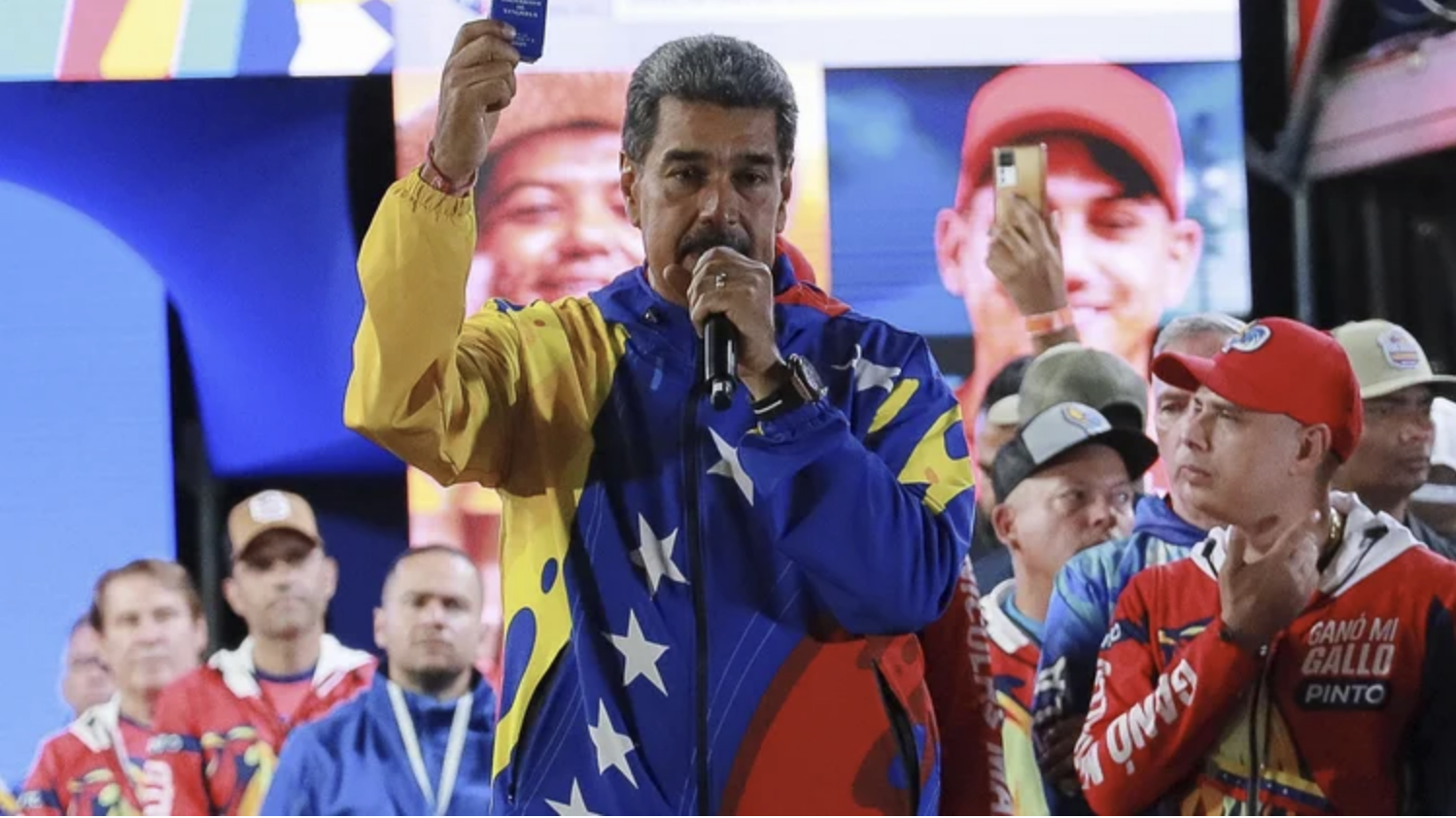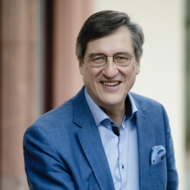Venezuela
An electoral fraudster as president of Venezuela?

Maduro in front of his supporters in Venezuela
© picture alliance / Anadolu | Pedro Rances MatteyThe presidential election in Venezuela took place on 28 July 2024. It ended with proven fraud: Chavista incumbent Nicolás Maduro allegedly won with 51.95 per cent of the votes cast compared to 43.18 per cent for the opposition candidate, Edmundo González. In a brilliantly prepared process, supported by volunteers in 58,000 volunteer groups, the clever opposition obtained copies of around 85 per cent of the election files (Spanish: ‘actas de escrutinio’), the results from over 30,000 polling stations in the country, digitised them on election night and calculated the true result as an estimate from this huge sample: around 67 per cent for González and just 30 per cent for Maduro, proving clear electoral fraud by the Maduro regime!
The impending disaster for Maduro had already been foreshadowed months before the election. The extremely popular, charismatic María Corina Machado of the Vente Venezuela party, a member of Liberal International, was denied the presidential candidacy by the courts despite huge success in the opposition primaries. Only this led to the largely unknown Edmundo González running with the full support of the united opposition - in effect as a kind of proxy for Machado. The final conclusion to the electoral fraud was finally provided by a court judgement later in August, which confirmed the results with Maduro as the winner - without the electoral authority having published the election files produced by the voting machines to date.
In short: a disgrace for the country and the people, an open attack on democratic rights - in front of the eyes of the entire world public. The public everywhere, though with clear differentiations: In the left-wing socialist camp, there was no more than an audible murmur - largely without consequences; in the broader-democratic world, on the other hand, the outrage was open and vociferous. The autocratic superpowers China and Russia showed the usual recognition for their undemocratic friends. Until the very end, there were demonstrative political signals of support for Edmundo González, who was in fact elected, most recently from US President Biden, who received him in person in Washington D.C. just recently.
Between hope and repression: Venezuela's path after the election
What now? Edmundo González, who temporarily left Venezuela after his election for security reasons, has announced that he will return on time to accept his election. We will see what happens. Meanwhile, María Corina Machado is staying in the country - in unknown locations.
In this tense context, the Maduro regime has mercilessly escalated the repression and further intensified the arbitrary arrests of civilians. There have also been reports of the arrest of at least 125 foreigners labelled as ‘mercenaries’ by the regime.
This continues the systematic violation of fundamental rights that the Maduro regime has practised throughout the electoral process. On Tuesday, the Inter-American Commission on Human Rights (IACHR) published a report denouncing serious human rights violations. According to the IACHR, Maduro's re-election lacks any ‘democratic legitimacy’, as the electoral process was characterised by obstacles to the political participation of the opposition, including arbitrary arrests and disqualifications.
The report emphasises that these human rights violations and practices of state terrorism are due to the fact that the executive has taken control of all state institutions, coupled with widespread corruption and the weakening of public authorities, allowing the regime to act with complete impunity.
Venezuela's fate in an international context
It is hard to believe that Nicolás Maduro can continue to keep the people down without provoking unrest - without any legitimacy. The behaviour of foreign countries could also be decisive. The designated US Secretary of State Marco Rubio is rightly regarded as a great friend of Venezuela, who has previously been very critical of the situation there. Many Venezuelans have high hopes for him. On the other hand, he will have to take into account the restrictive migration policy agenda of President Donald Trump: since Nicolás Maduro took office in 2013, almost eight million Venezuelans have left their country, many of them heading for the USA. The flow of emigrants has swelled massively in recent years in particular because Maduro was ill-equipped and completely unable to deal with the economic crisis with his socialist instruments. ‘Getting rid’ of the migrants could make it necessary for Trump to reach an understanding with Maduro - and undermine a tough stance by the United States.
Devastating balance sheet of Latin American socialism
So: much remains open. But one thing not: after Cuba and Nicaragua, Venezuela has provided another spectacular example of the disastrous record of Latin American socialism. Considering that these countries in particular were used by European left-wing intellectuals for decades as glorious examples of autocratically controlled planned economies, the failure has global significance, far beyond the continent. This is all the more true as Latin America's economic balance sheet as a whole has shown clear glimmers of hope in recent years - also thanks to the one or other success in the market economy orientation, such as in Chile and Costa Rica and, more recently, perhaps also in Argentina.
It remains to be seen whether charismatic personalities of the new Latin American liberalism such as María Corina Machado, winner of the Sakharov Prize for Freedom of Thought 2024, the European Union's highest honour for human rights advocacy, will be able to make a difference in the coming years. The course was recently set at the LIBERAL INTERNATIONAL conference in Santiago de Chile. There is a long way to go and there is great political resistance, especially from the socialist left, which is present everywhere.
Latin America has enormous potential, and more and more people in the region are realising this. But for this potential to turn into stable democracies and a future of freedom and prosperity, it is crucial that Europe and the United States provide decisive and coherent support. There is still a lot of room for improvement.
With the Maduro regime using terror as a tool to secure power, the courageous Venezuelan people understand exactly what is at stake. María Corina Machado called on people to join her on the streets to demonstrate against Maduro's plan to run for a third term in office on Friday, despite his clear defeat in last summer's elections. Her message echoes as a call for determination in the face of adversity:
‘In the end, the only way to be free is to overcome fear.’
– María Corina Machado –
Aktuelle Entwicklungen am 10. Januar 2024:
News: According to her campaign platform, Maria Corina Machado was kidnapped after a protest rally in Caracas and has since been released. She announced that she would make a more detailed statement on the matter today, Friday.
